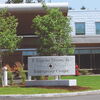Consider investing in facilitated team building
Workplace teams are not just collections of individuals doing parallel activity. As work becomes more complex and competition stiffer, businesses increasingly need managers and employees to truly pool their talents and energy to dazzle customers, i.e. to work in teams.
Teams create competitive advantage through collective genius. Workplace teams are powerful units of performance. People mine each other's skills and knowledge, commit to creating success and produce results that are greater than the sum of the individuals' efforts.
But they can only do that if they know how to work together, which is more easily said than done. “Dream teams” in sports win the game by using the coordinated strengths of every player, and they train exhaustively to learn how to play that way. Dream teams in businesses must do the same. Teamwork is a skill set in itself, and often does not come naturally. Internal competitiveness, battles for power, clashing personalities, and unresolved conflicts comprise a short list of what can get in the way of good teamwork.
Dream team members use each other's differences to create productive change toward clear, shared goals. They are accountable leaders.
Although doing things together, such as a lobster bake or community service project, can be great fun and contribute to good feelings among team members, it won't necessarily move a team toward reaching its goals. To reach that dream-team status, you most likely need the help of facilitated teambuilding.
Facilitated teambuilding in the workplace is the process of learning dream-team skills together. I've discussed this at length with Camp Ketcha team-building experts Tom Doherty, executive director, and Brooke Burkett, director of leadership adventure programs, who offer team-building workshops year-round at their Scarborough facility. Here are some tips on what to expect when you engage in facilitated teambuilding, regardless of the facilitator or the venue:
- Facilitated teambuilding is particularly relevant when a new team has formed; an existing team has new members or leaders; a team is undergoing change; a high-performing team wants to examine the source of its success in order to keep it; or a team wants fresh perspective. You should select a facilitator with a full range of approaches who is willing to invest the time to gain in-depth knowledge and understanding of the complex and unique attributes of your team.
- The facilitator should collaborate through consultations with the team members to set goals before the program begins. I often talk with each team member beforehand to get a complete perspective on the issues. I don't want to make assumptions or in any way risk the team's well-being.
- Activities are pre-planned and designed to get the team toward its goals. The activities are metaphors to help team members learn in new ways. They draw out strengths and opportunities for development in each team member and the team as a whole. Teams change their dynamics when engaging in metaphor activities, and learn to apply these changes to the workplace.
- In a facilitated teambuilding program, it is not left to chance whether people engage. Emotional, physical and psychological safety is assured. There is challenge by choice, no forcing. There is no weakest link. Everyone has important work to do, and can easily engage regardless of physical ability. Tom took his mother on a high-ropes team event when she was in her 60s. She was honored and gratified when a team member asked her to secure his climb up and down the high-ropes structure. She stayed firmly on the ground belaying and kept her teammate safe.
Fun is integral to teambuilding and bonds people with “remember when” experiences. And it makes people learn better. When we're relaxed, laughing or having fun our blood vessels expand, bringing more oxygen to our brains and we actually think better. The converse is true as well. When we're stressed, nervous or strained, our blood vessels contract and we're not so smart in those moments.
In our diverse experiences, outdoor settings speed the team-building process even more. Outdoor structured activities accelerate group processes because people are relating to experiences that are not part of their everyday work. They are using different strengths, taking on different roles and learning about working with each other in new ways, experiences that can be transferred to the work place.










Comments